The Impact of Failed Drug Test on Employment Opportunities
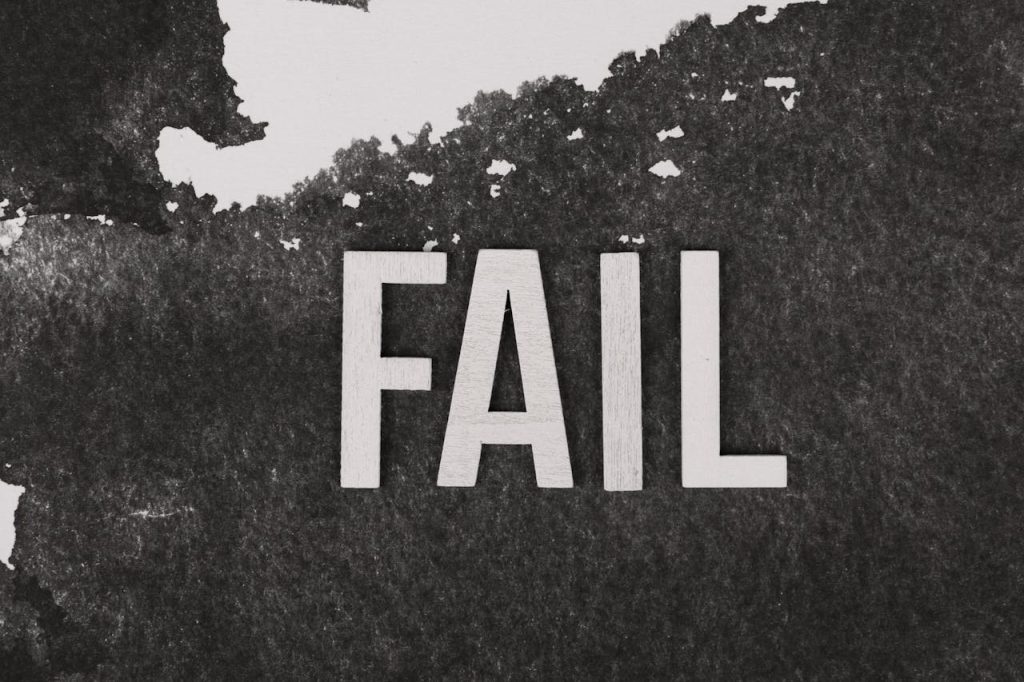
Introduction and Understanding Drug Test Results in Employment
Drug testing has become a standard practice in the hiring process for many employers. Whether for safety, productivity, or legal reasons, organizations often require new hires to undergo drug testing before finalizing job offers. For potential employees, passing these tests is crucial for securing a job, while failing can have a significant impact on their career prospects.
Employers typically require drug tests for a variety of reasons, such as ensuring workplace safety, preventing substance abuse-related accidents, and complying with industry regulations. In certain industries, such as transportation, healthcare, or safety-sensitive jobs, drug testing is a non-negotiable requirement, and failing a drug test can lead to immediate disqualification. For job seekers, understanding what happens if you fail a drug test for a job is essential for managing your career path.
What Happens When You Fail a Drug Test for a Job?
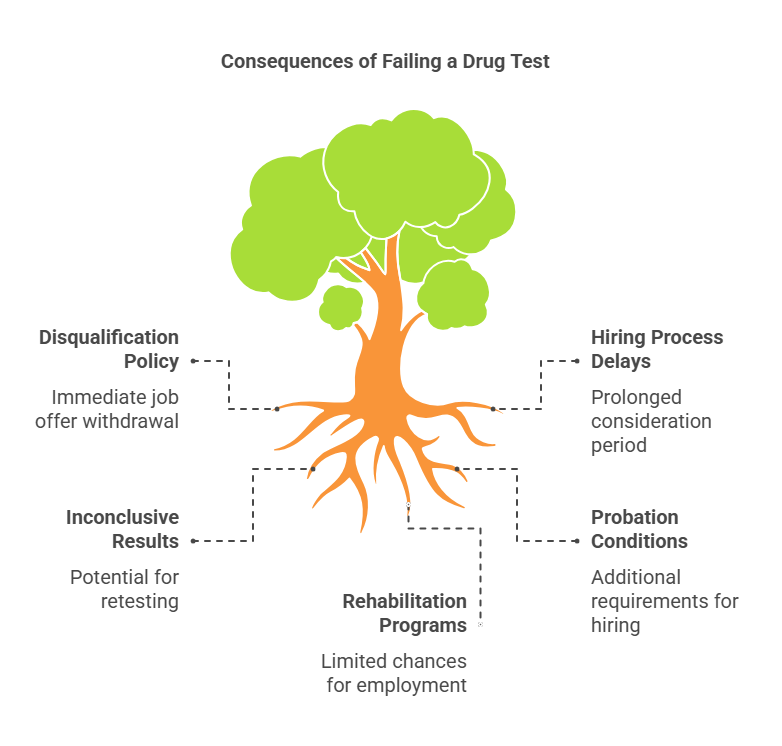
When an applicant fails a drug test, the immediate consequences can be substantial. Most companies will disqualify the candidate from further consideration, meaning the job offer will be withdrawn, or the applicant will not move forward in the hiring process.
In some cases, a failed drug test may not lead to immediate disqualification but could delay the hiring process, depending on company policies. Employers often reserve the right to retest an applicant or request additional screenings if the first test result is inconclusive or flagged.
For individuals who fail a drug test but are still in consideration for the job, companies may also implement probation periods or offer rehabilitation programs as a condition for hiring. However, in most scenarios, a failed drug test means that the candidate will not be hired.
How Long Does a Failed Drug Test Affect Your Job Prospects?
The length of time a failed drug test impacts your job prospects depends on several factors, including the industry you’re applying to, the severity of the failure, and how much time has passed since the test. In some industries, such as transportation or healthcare, a failed drug test may remain a significant hurdle for a long time, while other fields may be more lenient after a certain period has passed.
Employers often use background checks to verify past drug tests, but not all companies will look into your drug testing history from previous employers. Many employers focus on recent results, meaning a failed drug test from several years ago may not have the same impact as a more recent failure.
Does a Failed Drug Test Stay on Your Employment Record?
The simple answer is: it depends. A failed drug test doesn’t typically stay on your formal employment record, as most employers don’t track drug testing results in a way that becomes part of your permanent employment history. However, some employers may share the results of failed drug tests internally or within specific industry networks.
In general, drug test results are not visible to future employers unless they specifically request access to such information through background checks. The results are typically only relevant within the company that conducted the test and may not carry over to future employers, especially if a significant amount of time has passed since the test was conducted.
It’s important to note that while the failed test result may not be part of your formal employment record, the fact that you were disqualified from an opportunity due to a failed drug test may be remembered by the hiring manager or employer involved.
Do Employers Have Access to Drug Test Results from Previous Jobs?
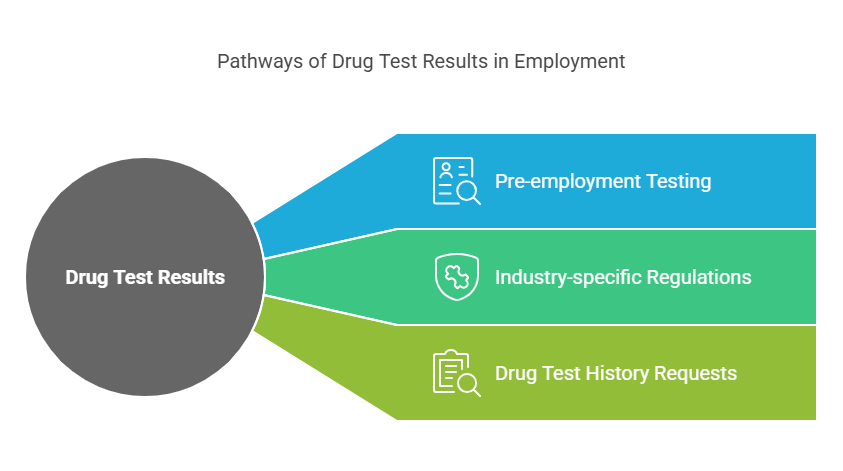
When it comes to background checks, employers typically have access to certain types of information, including criminal history, previous employment details, and sometimes, drug test results. However, whether a past drug test result appears in a future background check largely depends on the employer’s policy, the type of background check conducted, and the timeframe in question.
For most background checks, employers do not typically request access to past drug test results from previous jobs, unless they are specifically looking for this information. However, there are a few situations where drug test results could appear:
- Pre-employment drug testing results: Employers who conduct pre-employment drug tests will receive the results for that specific test. These results do not carry over to future employers unless the candidate discloses them or the new employer requests a detailed report from the previous employer.
- Industry-specific regulations: Some industries, such as healthcare, transportation, and law enforcement, require ongoing drug testing as a condition of employment. Employers in these fields may keep detailed records of drug tests conducted during your employment, which could be shared with future employers within the same industry or regulatory body.
- Drug test history requests: In some rare cases, an employer may request a more comprehensive report that includes information about previous drug tests. However, this is not common practice unless you are applying for a job within a highly regulated field.
Can Drug Test Results Impact Your Future Employment?
Yes, a failed drug test can impact your future employment, especially depending on how recent the failure was and the policies of the employers you are applying to. While not every employer will dig into your past drug test history, some may ask for more detailed records as part of a comprehensive background check, particularly if the position requires a high level of trust or involves safety-sensitive duties.
Here are a few scenarios where a failed drug test could affect your future employment:
- Recent failures: If the failed test was recent, it may be considered a red flag by potential employers, especially if the employer has a strict drug-free workplace policy. A failed drug test within the last year or two could make it more difficult to secure a new job.
- Drug-free workplace policies: Employers in fields with strict drug-free workplace policies, such as healthcare, law enforcement, or transportation, may disqualify applicants who have failed drug tests in the past, regardless of how long ago it happened.
- Employer discretion: Some employers are more flexible when it comes to failed drug tests, particularly if the candidate can explain the circumstances or if a significant amount of time has passed since the failed test. Employers may focus more on the applicant’s recent history and other qualifications.
At this point, it’s worth mentioning Exact Background Checks, a service that provides detailed and comprehensive employment screening for businesses. Employers often rely on Exact Background Checks to ensure they are making informed hiring decisions by obtaining verified and up-to-date information about potential hires. When conducting thorough background checks, these services consider drug test history and other factors that could impact an applicant’s qualifications.
The Role of Drug Test Results in the Hiring Process
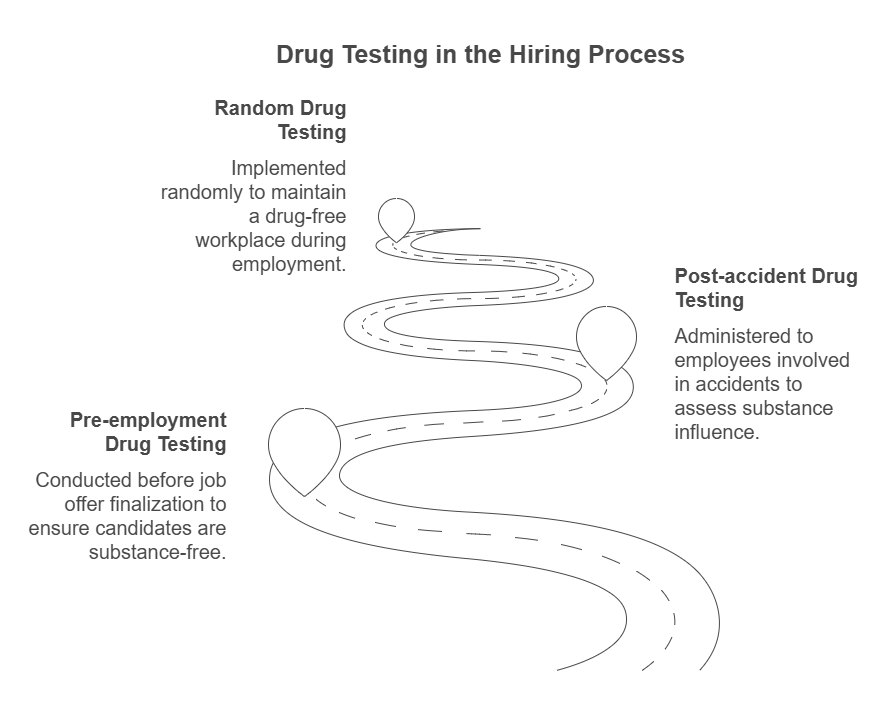
Employers typically use drug test results as part of their overall hiring decision-making process. These results help employers evaluate whether a candidate is a good fit for the company, particularly for roles that require focus, safety, and reliability.
Employers may use drug testing in the following contexts:
- Pre-employment drug testing: This is the most common time for drug tests to occur, before a job offer is finalized. It ensures that a potential employee is free of substances that could impair their ability to perform the job.
- Post-accident drug testing: In industries where safety is a concern, employees who are involved in workplace accidents may be required to undergo a drug test to determine whether substances contributed to the incident.
- Random drug testing: In certain industries, random drug testing is a common practice to ensure that employees maintain a drug-free status while on the job. Employers may conduct surprise drug tests at any time during an employee’s tenure with the company.
To give a clearer picture of when and how drug tests are conducted and their potential impact, here is a table summarizing drug testing timelines and factors:
| Type of Drug Test | When It’s Conducted | Impact on Employment |
|---|---|---|
| Pre-employment Drug Test | Before job offer is finalized | A failed test can lead to immediate disqualification from the hiring process. |
| Post-Accident Drug Test | After a workplace accident or injury | Failure can result in disciplinary action or loss of the job. |
| Random Drug Test | At random intervals during employment | A failed test may result in disciplinary action, suspension, or termination. |
| Follow-up Drug Test | Required after a previous test failure (often for rehabilitation or probation) | Results can determine continued employment or reinstatement. |
Legal Considerations for Failed Drug Tests in Employment
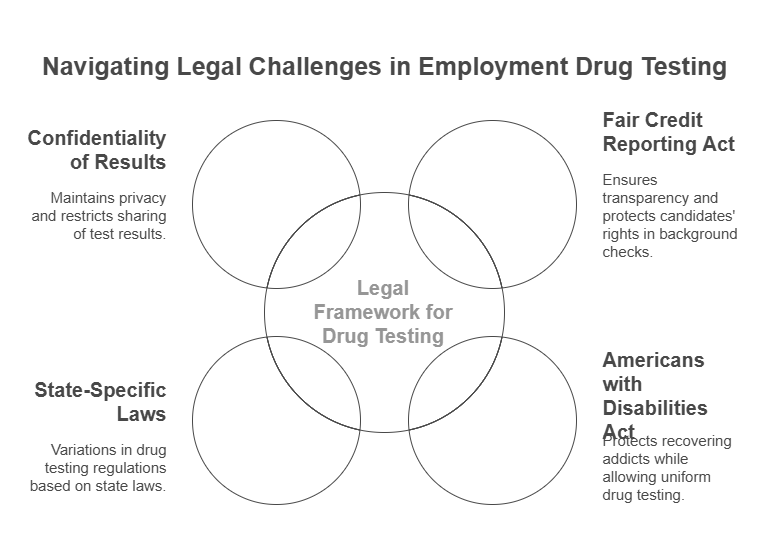
When it comes to drug testing in the hiring process, there are several legal considerations that both employers and employees must be aware of. Understanding the legal framework can help protect both parties and ensure that drug testing is conducted fairly and within the bounds of the law.
- The Fair Credit Reporting Act (FCRA): The FCRA sets the guidelines for employers when they use third-party services to conduct background checks, including drug tests. It requires employers to:
- Obtain the candidate’s written consent before conducting a background check.
- Provide the applicant with a copy of the drug test results if they are used to make an adverse decision (such as withdrawing a job offer).
- Give the applicant an opportunity to dispute any discrepancies in the report before taking adverse action.
This ensures that the drug testing process is transparent and that the candidate’s rights are protected.
- Americans with Disabilities Act (ADA): The ADA prohibits discrimination against applicants with disabilities. However, the ADA allows employers to screen applicants for illegal drug use as long as the test is applied uniformly. If an applicant is a recovering drug addict or has a prescription for a medication, the ADA protects them from discrimination, provided they are not currently using illegal substances.It’s important to note that while the ADA offers protections for those recovering from addiction, it does not protect individuals currently using illegal drugs.
- State-Specific Laws: Drug testing laws can vary by state. Some states have stricter regulations regarding when and how drug tests can be conducted. For example:
- Medical Marijuana Laws: In states where medical marijuana is legal, applicants may not be disqualified for using marijuana if it is prescribed by a doctor, even though marijuana remains illegal federally.
- Recreational Marijuana: Some states that have legalized recreational marijuana may still allow employers to screen for marijuana use and take action based on positive test results.
- Rehabilitation Programs: Some states require employers to provide opportunities for employees who fail drug tests due to addiction to seek treatment rather than face immediate termination.
- Confidentiality of Test Results: Employers are required to keep drug test results confidential and only share them with those who need to know, such as human resources personnel or supervisors in certain cases. Test results cannot be shared with other employers unless the applicant has given permission or there is a legal requirement to do so.
FAQs
Here are answers to some of the most frequently asked questions about failed drug tests and their impact on employment:
What happens when you fail a drug test for a job, and how long does it affect your job prospects?
When you fail:
- Most companies will disqualify you.
- Job offer may be withdrawn.
- Potential delays or retesting may occur.
- Rehabilitation programs may be offered.
Impact on job prospects:
- Depends on industry, severity, and time passed.
- Transportation and healthcare may have longer-lasting impacts.
- Recent failures are more significant.
Does a failed drug test stay on your employment record, and do employers have access to drug test results from previous jobs?
- Not typically on formal employment records.
- Results are usually internal to the testing company.
- Future employers may not see them unless specifically requested.
Access to previous results:
- Pre-employment tests are accessible.
- Industry-specific regulations may require records.
- Comprehensive background checks may reveal them.
Can drug test results impact your future employment, and in what scenarios?
Yes, especially:
- Recent failures are a red flag.
- Strict drug-free policies may disqualify you.
- Employer discretion varies.
What is the role of drug test results in the hiring process, and what are the different types of drug testing?
Role:
- Evaluates candidate fit, focus, safety, and reliability.
Types:
- Pre-employment: Before job offer.
- Post-accident: After workplace incidents.
- Random: During employment.
- Follow-up: After previous failure.
What legal considerations are involved in failed drug tests in employment, particularly regarding the FCRA and ADA?
Legal considerations:
- Fair Credit Reporting Act (FCRA): Requires consent, report copies, dispute rights.
- Americans with Disabilities Act (ADA): Protects recovering addicts, not current users.
- State-Specific Laws: Vary on medical/recreational marijuana, rehabilitation.
- Confidentiality: Results must be kept private.
Conclusion
In conclusion, failing a drug test for a job can have serious consequences on your employment prospects, but it is not necessarily a permanent mark on your record. While drug test results may not be directly included in your permanent employment record, they can still impact your future job opportunities, especially if they are recent or involve a position that requires strict adherence to drug-free workplace policies.
Understanding how drug test results are handled, both legally and within the hiring process, is crucial for both job seekers and employers. Employers must comply with legal guidelines, such as the FCRA and the ADA, to ensure fair treatment of applicants. On the other hand, job seekers must be aware of the potential consequences of failing a drug test and be transparent about any medications or treatments they are using that could affect the results.
If you’re an employer, working with a professional background check service like Exact Background Checks can help you navigate the complexities of drug testing, ensuring you make informed hiring decisions while adhering to legal standards. For job seekers, being proactive in understanding company policies and the potential impact of drug test results on your future job opportunities can help you make informed decisions throughout the hiring process.
Finally, always keep in mind that drug testing policies and the consequences of a failed test can vary depending on your location, industry, and the specific employer. Staying informed and transparent will always be your best strategy in navigating these situations effectively.



